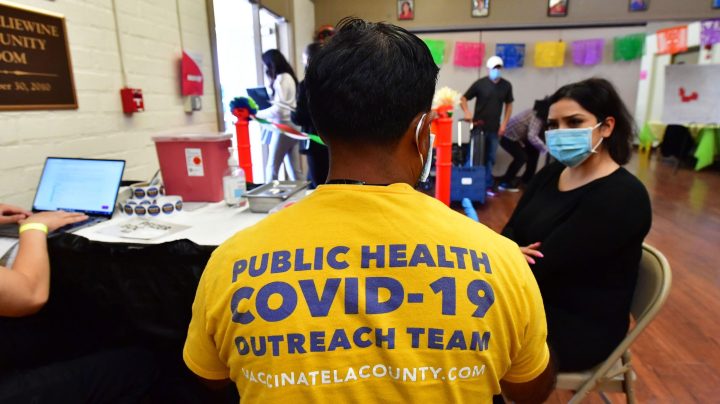
What happens once federal funding to fight COVID ends?

The Food and Drug Administration approved updated COVID boosters Wednesday designed to protect against both the original strain of COVID and the newer, more predominant variants currently circulating — BA4 and BA5.
Those bivalent boosters could be available starting next week. And, for now, they’ll be free to everyone.
But the Department of Health and Human Services is warning that could change as soon as January because federal COVID funding is running out.
Congress hasn’t approved new COVID funding for about a year and a half. And there’s not a whole lot of money left.
“Local and state health departments are already withdrawing some of their activities because their funding is drying up,” said Dr. William Schaffner at Vanderbilt University Medical Center.
He said some communities have reduced outreach and closed some testing and vaccination sites.
“That concerns me because public health outreach has helped us address the issues of equity,” he said.
As of Friday, the federal government will also stop sending out free rapid home COVID tests because of a lack of funding.
“It’s not only at-home tests, but it’s also going to be treatment and vaccination,” said Amy Fairchild at Ohio State University.
For now, she said, states generally have supplies of tests, vaccines and most treatments that have already been paid for.
“But when those supplies run out, then we’re going to shift to a market-based approach,” she said. “A personal-resources approach to managing a consequential infectious disease.”
That was likely to happen at some point, said Matt Fiedler at the USC-Brookings Schaeffer Initiative for Health Policy.
“Everyone has always assumed that COVID-related care and vaccines are ultimately going to transition into the health insurance system,” he said.
But it’s happening sooner than many public health officials say it should.
Dr. Kavita Patel, a primary care doctor in Washington, D.C., said right now she’s most concerned about getting enough people boosted this fall.
“The Biden administration can purchase the vaccines, which they have, but we have no money for a booster rollout,” she said.
Public awareness campaigns and ads are key to getting people to go and get vaccinated, Patel said.
And they cost money.
There’s a lot happening in the world. Through it all, Marketplace is here for you.
You rely on Marketplace to break down the world’s events and tell you how it affects you in a fact-based, approachable way. We rely on your financial support to keep making that possible.
Your donation today powers the independent journalism that you rely on. For just $5/month, you can help sustain Marketplace so we can keep reporting on the things that matter to you.


















